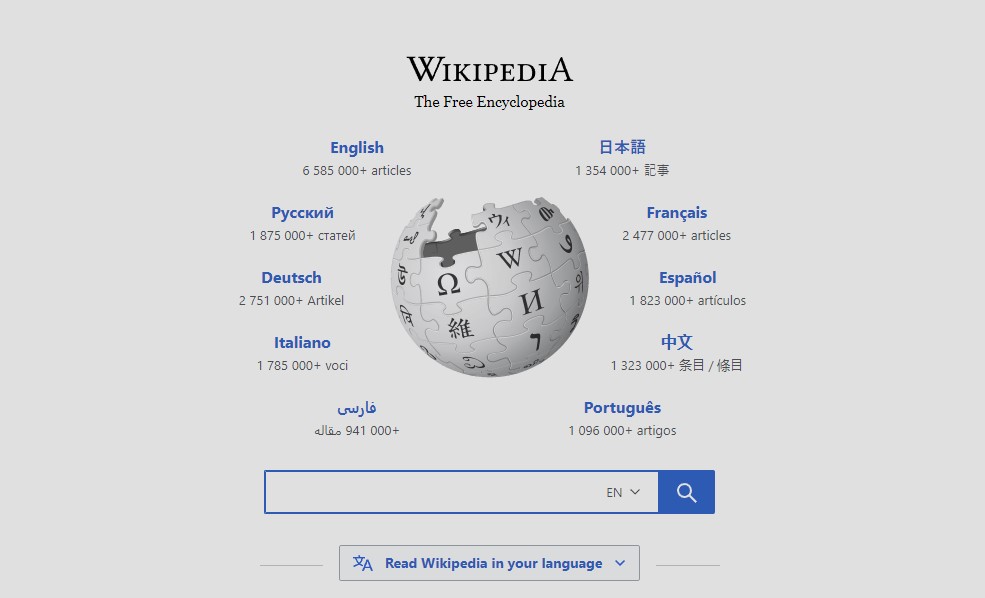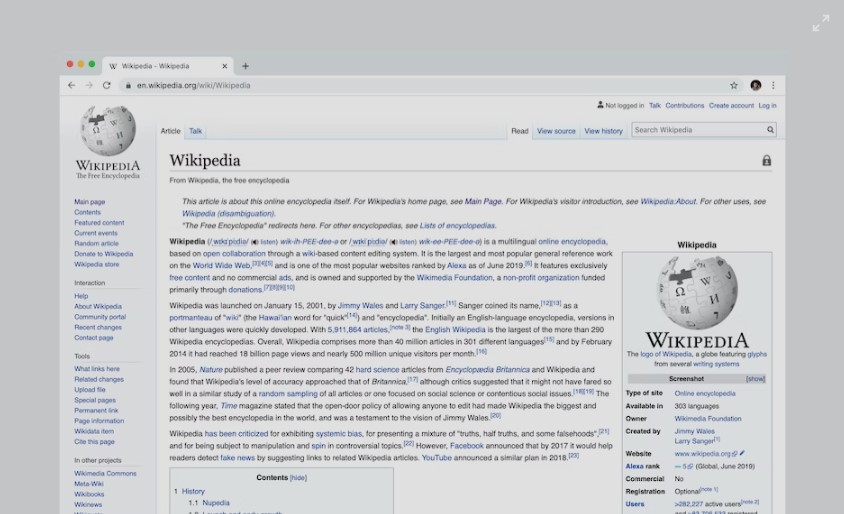How To Know If Someone Blocked You On iMessage? 5 Secret Hacks!
Apr 16, 2025

Apr 16, 2025

Apr 16, 2025

Apr 15, 2025

Apr 11, 2025

Apr 11, 2025

Apr 11, 2025

Apr 08, 2025

Mar 29, 2025
Sorry, but nothing matched your search "". Please try again with some different keywords.

The reliability of Wikipedia has always been a controversial topic, but now we have evidence to take a definite stand. Click here to learn all you need to know.
There has been debate on the reliability of Wikipedia for a long time. Some professionals believe that the online encyclopedia is a reliable source of information. Others, however, believe that the accuracy of its information cannot be determined.

There are plenty of examples to demonstrate that its level of reliability varies under different circumstances. But, regarding general knowledge, Wiki has earned a reputation as one of the most reliable websites.
Reliability of the Wikipedia is always getting more
Read on to learn more about why the reliability of Wikipedia is a point of contention and why you can trust what is written on its many pages.
Wikipedia is one of the most commonly used online resources. It is regularly used to improve search results.
Compared to other search engines, the reliability of Wikipedia stands out due to its use of many sources and its internal vetting process. Yet, many are skeptical about how accurate is Wikipedia.
However, this debate can finally be settled since there is evidence to suggest that Wikipedia is more reliable than assumed. Academics, for example, compare Wikipedia to other types of encyclopedias. They find that its content is comparable in terms of accuracy and detail.
Furthermore, researchers have found Wikipedia more reliable than assumed regarding scientific information or areas of knowledge that require up-to-date accuracy. This means Wikipedia can be a reliable source for gathering general information and straightforward facts.
One of the most common misconceptions is that articles on Wikipedia can be written by anyone, which isn’t true. In fact, Wikipedia is only as reliable as its contributors.
All content is moderated and checked for accuracy and quality by experienced editors. Additionally, Wikipedia is not a primary source of information and is best used as a supplementary resource.
Another thing that people usually ask is that “is Wikipedia biased?” The answer is no. Articles are required to be neutral and written from an objective point of view, ensuring that there is no bias the reliability of Wikipedia is outstanding and always maintained in a proper manner.
To evaluate the content quality of Wikipedia, it is essential to understand how it is designed and maintained. Wikipedia entries are written and edited by volunteers who have limited expertise. Because of this, accuracy is often sacrificed for convenience.
However, this lack of accuracy is not absolute. Wikipedia employs a range of mechanisms, such as Revision History, Discussion Pages, and Citation Notices.
Wikipedia also has active admins, bots, and experienced users. They monitor content for accuracy and coordinate the editing of pages regularly. These types of authentic users and viewer numbers are maintaining the reliability of Wikipedia.
A few pieces of technology can be leveraged to assess Wikipedia’s trustworthiness. The first piece is a research-based algorithm. It helps identify potential conflicts of interest and detect vandalism.
A second piece of reliability of Wikipedia is they are using the technology is an automatic plagiarism detection system. This ensures that each article is unique and avoids plagiarism.
Finally, an artificial intelligence system can be used to analyze user contributions. It can spot any malicious behavior.
The data accuracy of Wikipedia is maintaining the trustworthiness of the site even any of the visitors who like to add anything to the content can add as registered clients.
Wikipedia is maintaining data accuracy. The reasons are very simple. As they are having so many numbers of users more users means the chances of data accuracy are higher.
If Wikipedia has registration fees and very limited numbers of users then getting the data accurate was turning out to be tough work. The reliability of Wikipedia is properly maintained because of the multiple users from different levels of social structures.

Science subjects are not like the other arts subjects and literature subjects. For science subjects, data accuracy is the most valued aspect. This is not only a matter of data accuracy valid information provided is also a matter of science subjects.
This is the reason often the science students can’t actually believe science subjects from Wikipedia. Wikipedia allows everyone to edit and add content to every subject including science subjects. If someone does not have the proper ideas about the subject then they are not going to provide the right information.
Wikipedia is allowing everyone to edit the contents. But for authentication checking, it is better to check the case study for the illustration. Usually, science students are already 50% aware of the subjects which are in the content. So they have to use that concept.
And one secret tips ar
To put the debate to rest, Wikipedia is an amazing resource. Despite myths, misconceptions, and rumors, there is no denying the reliability of Wikipedia on most topics.
While it is essential to stay vigilant and aware of the potential for incorrect information, it is just as necessary to take advantage of this resource’s many benefits.
So what are you waiting for? Try it out yourself and explore the plethora of information available to you!
If you find this article informative and want to read more about educating yourself and others, please check out the rest of our site.
Read Also:
Arnab is a professional blogger, having an enormous interest in writing blogs and other jones of calligraphies. In terms of his professional commitments, He carries out sharing sentient blogs.
View all Posts
How To Know If Someone Blocked You On iMessag...
Apr 16, 2025
7 Website Design Mistakes That Are Hurting Yo...
Apr 16, 2025
Programmable Dynamic SEO for Location-Based P...
Apr 15, 2025
Google Boba Game: How To Play This Fun Game B...
Apr 11, 2025
Which Is The Best Video Search Engine Of 2025...
Apr 11, 2025


